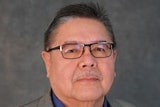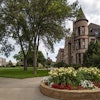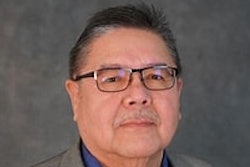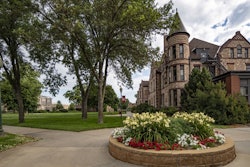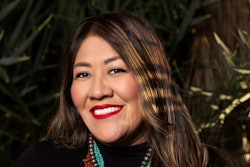MOSCOW, Idaho
Angelique
She was 8 years old and watching the television in her family’s living room in 1978 when news broke that her uncle, a Black man who had married into a Native American family and was beaten by five deputies when he went to pay a speeding ticket, was awarded $75,000 in punitive damages.
“I knew I wanted to make my life about justice,” said
Roughly 30 years later,
“There are over 35 states that have sovereign, independent tribal nations within their boundaries, if you’re practicing in any one of those states you have to understand the basics of Indian law,” said Heather Dawn Thompson, president of the National Native American Bar Association.
“It’s a little bit crazy,” Thompson said. “Alaska has over 200 tribes and it’s not on their bar exam.”
It’s also not on the exam in California, where there are more than 100 tribes, and also not on the one in Oklahoma, where there are more than 40, said Thompson, a member of the Cheyenne River Sioux.
Since the 1970s, only a handful of lawyers who specialize in Native American law have been available to help tribal members navigate through legal matters.
“You had all sorts of attorneys that had no idea what they were talking about,” she said.
Thompson said attorneys, particularly those in states with tribes, must understand there are three systems of practice: state, federal and tribal law. Each has three distinct set of rules, each has three distinct court systems.
For example, if a mother dies and her child is underage, the custody would most likely go to the father under state legal proceedings and the traditional western notions of family structure.
But under tribal law, the family structure is often different. In some tribes, a biological mother’s sister could be granted custody because the women share the same rights and responsibilities.
The federal Indian Child Welfare Act makes sure tribal law is respected in this area of legal proceedings.
“So many attorneys do not know that law exists and they break it every day,” Thompson said. “That’s a concept that’s hard for a lot of attorneys who practice family law to wrap their head around and it’s one of the reasons why the program at the University of Idaho is so important.”
At the university, a campus built on the aboriginal homeland of the Nez Perce Tribe, the law school last year hired
With only a handful of Native American law programs available nationwide, only three states include this area of the legal profession on the list of subjects that can be tested on the bar exam. Those states are Washington, New Mexico and South Dakota,
Last year, she taught 17 law students and two others studying American Indian studies. This fall, she’ll have 32 law students and eight others.
Along with building the law emphasis curriculum,
“So many attorneys had no basis in Native American law and I thought that was a travesty,” she said.
© Copyright 2005 by DiverseEducation.com
